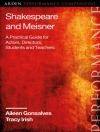Between the two world wars, a distinct and vibrant film culture emerged in Europe. Film festivals and schools were established; film theory and history was written that took cinema seriously as an art form; and critical writing that created the film canon flourished. This scene was decidedly transnational and creative, overcoming traditional boundaries between theory and practice, and between national and linguistic borders. This new European film culture established film as a valid form of social expression, as an art form, and as a political force to be reckoned with. By examining the extraordinarily rich and creative uses of cinema in the interwar period, we can examine the roots of film culture as we know it today.
Содержание
List of Figures
Acknowledgements
Introduction: The Emergence of Film Culture
Malte Hagener
PART I: FORMATIONS OF KNOWLEDGE
Chapter 1. Policing Race. Postcolonial Critique, Censorship and Regulatory Responses to the Cinema in Weimar Film Culture
Tobias Nagl
Chapter 2. The Visible Woman in and against Béla Balázs
Erica Carter
Chapter 3. Encounters in Darkened Rooms: Alternative Programming of the Dutch Filmliga, 1927-1931
Tom Gunning
Chapter 4. When Was Soviet Cinema Born? The Institututionalization of Soviet Film Studies and the Problems of Periodization
Natalya Ryabchikova
PART II: NETWORKS OF EXCHANGE
Chapter 5. Eastern Avatars. Russian Influence on European Avant-gardes
Ian Christie
Chapter 6. Early Yugoslav ciné-amateurism: Cinéphilia and the institutionalization of film culture in the Kingdom of Yugoslavia during the interwar period
Greg De Cuir, Jr.
Chapter 7. Soviet-Italian Cinematic Exchanges. Transnational Film Education in the 1930s
Masha Salazkina
Chapter 8. The Avant-garde, Education and Marketing: The Making of Non-Theatrical Film Culture in Interwar Switzerland
Yvonne Zimmermann
PART III: EMERGENCE OF INSTITUTIONS
Chapter 9. Interwar Film Culture in Sweden. Avant-Garde Transactions in the Emergent Welfare State
Lars Gustaf Andersson
Chapter 10. Building the Institution. Luigi Chiarini and Italian Film Culture in the 1930s
Francesco Pitassio and Simone Venturini
Chapter 11. A New Art for a New Society? The Emergence and Development of Film Schools in Europe
Duncan Petrie
Chapter 12. Institutions of Film Culture. Festivals and Archives as Network Nodes
Malte Hagener
Chapter 13. The German Reichsfilmarchiv in an International Context
Rolf Aurich
Notes on Contributors
Bibliography
Index
Об авторе
Malte Hagener is Professor of Media Studies at Philipps Universität Marburg. He is the author of Moving Forward, Looking Back: The European Avant-garde and the Invention of Film Culture, 1919-1939 (Amsterdam UP 2007) and with Thomas Elsaesser of Film Theory: An Introduction through the Senses (Routledge 2010).












